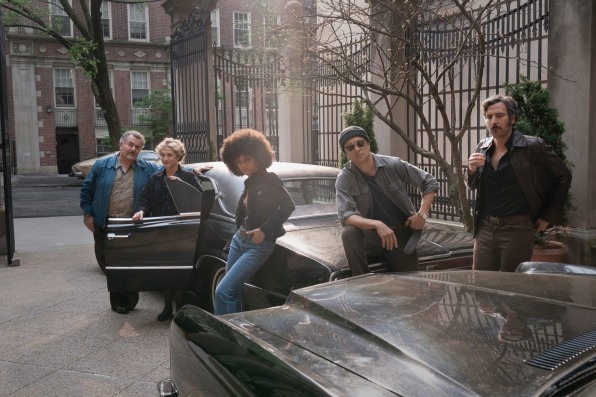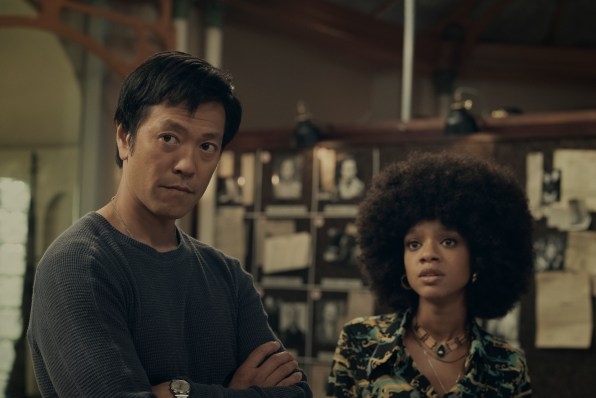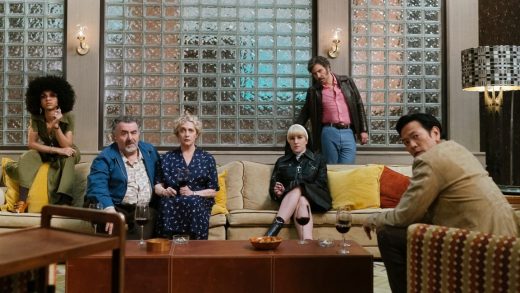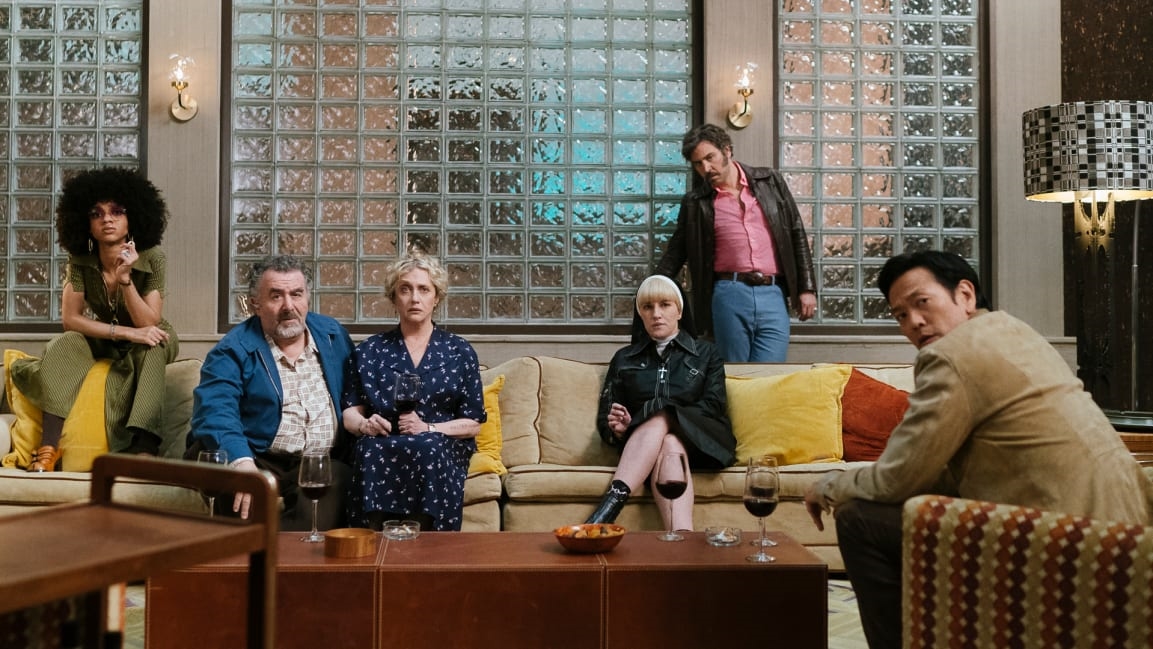Amazon’s ‘Hunters’ brings Nazis, Al Pacino, and muddled morality to ’70s New York
Suppose a Nazi scientist escaped Germany before the end of WWII, hiding out in the U.S. and working for NASA. And suppose that, 30 years later, a ragtag group of wisecracking, Nazi-hunting oddballs turned the now elderly woman’s shower into a gas chamber for one.
Would that woman’s death be hard justice, or murder most foul?
That is the question posed by Amazon’s new series, Hunters, but the answer is probably not the Keanu Reeves “whoa” that the show’s creator seems to expect.
Hunters, which comes from actor turned writer Daniel Weil and executive producer Jordan Peele, adds a smidge of Inglourious Basterds to a handful of The Americans, and blasts it with a gamma ray of comic-book sensibility. Set in late-1970s New York, the show stars Percy Jackson alum Logan Lerman as Jonah Heidelbaum, a recently bereaved grandson who is about to find out his beloved savta had been up to a lot more than she let on. (If you’re unfamiliar with Hebrew terms like savta, buckle up: This is the most Jewish show currently on TV, narrowly surpassing The Marvelous Mrs. Maisel.) After his grandmother’s (gefilte) fishy home-invasion murder, Jonah soon enters the mysterious orbit of Meyer Offerman (Al Pacino), a “Bruce Wayne-rich” holocaust survivor who, in his spare time, plays “Professor X” to a murderer’s row of actual murderers. As hinted at above, the show takes place in a world where not just one lone Nazi fled to America, but rather an entire cabal of them, dead set on enacting the Fourth Reich. Now, Jonah is ready to put his formidable code-breaking talents to work and pick up where his grandmother left off—on a blood-splattered mission to eradicate the remaining Nazis from existence.

There is a historical precedent to this show’s premise. With the duplicitous Operation Paperclip, the CIA snuck some 120 German scientists into America after the war, most famously Wernher von Braun, a crucial force in the Apollo moon landing. Lest one worry that the show remains too realistic, though, the creators nimbly buffet its brutal concentration camp flashbacks with weed-fueled fantasy dance sequences, flashy movie trailer-like character introductions, and plenty of comic-book ephemera. (The show also breaks with reality by using plenty of anachronistic dialogue, most egregiously with the Wedding Crashers-derived phrase “a stage 5 clinger.”)
While those spirited diversions are generally fun, the comic-book element is ultimately what keeps the show from fully clicking (beyond the fact that each episode is overlong and Josh Radnor’s Lonny Flash character, a waning movie star/master of disguise, is irredeemably annoying.) Creator Weil has mentioned in an interview that the show was inspired by his Holocaust-survivor grandmother, whose stories were “the stuff of comic books and superheroes.” Comic books have also, historically, not missed this comparison, with Captain America literally born to fight Nazis, and Magneto’s experiences in Nazi Germany shaping his attitude toward how mutants are treated.

Weil’s interest in superheroes and Nazis manifests on the show as an imperative for exploring moral relativism, and what makes one side in a war objectively the Good Guys. The opening credits feature chess pieces detailed to look like each character, chess being the ultimate example of conflict between virtually indistinguishable opponents. (Hunters is obsessed with chess; it factors into several scenes, including a disturbing one set in a concentration camp involving a human chess board.) An early scene between Jonah and his two best friends—who are nicknamed, no joke, Booty and Cheeks—makes this theme explicit. As the trio leaves a Star Wars screening and compares perspectives on Good Guys and Bad Guys, Jonah declares, “The only difference between a hero and a villain is who sells more Halloween costumes.”
The problem with parsing the accuracy of that statement in the form of Hunters is that we’ve almost universally agreed that the Nazis empirically were the Bad Guys. End of story. They were so much the Bad Guys that it’s considered trite (or inevitable) to casually compare typical, non-genocidal Bad Guys with them. In order to make a moral relativism question about Nazis relevant now, Weil had to invent a scenario where Al Pacino delivers—in an accent so piled with bagels and lox that it makes me, a non-practicing Jew, want to donate to the Anti-Defamation League—lines like, “This is not murder, it’s mitzvah.”
Now that actual “Jews will not replace us” Nazis have made their presence in America known in recent years, a show like Hunters might seem like a cathartic way to watch fictitious Nazis in America get what they deserve. At times, it certainly does accomplish that task. However, the emphasis on whether revenge can go too far and make its enactors indistinguishable from their enemies suggests that this show might instead be a cathartic watch for Richard Spencer the next time the national conversation turns to whether it’s okay to punch a Nazi in the face.
(19)



